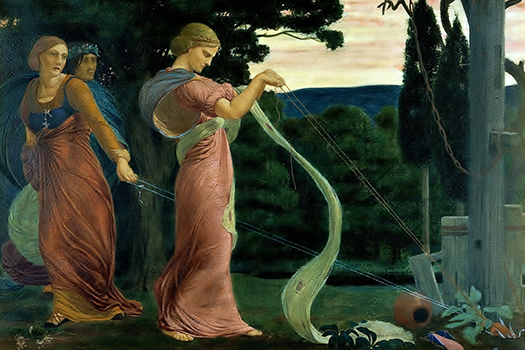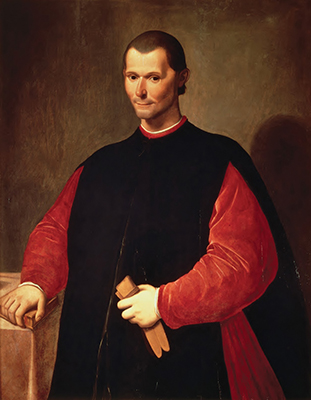“Go and catch a falling star, get with child a mandrake root…”. This begins John Donne’s poem, and another writer created another literary work a century before, that dealt with a virtuous woman, and with the magical mandrake plant.
So begins John Donne’s Song, a poem that was probably written early in the 17th century. The poem lists several other impossible tasks, the last of which is to find an honest woman – a rather cynical conceit. I mention it here because another writer, famous for his own cynicism, created another literary work a century before, that dealt with a virtuous woman, and with the magical mandrake plant.
(Here I must explain that plants of the genus mandragora have roots that are carrot-like but often bifurcated, and sometimes resemble deformed humans. They contain hallucinogens, and are associated in folklore with fertility. An old tradition says that when pulled from the earth, mandrake roots scream with such pain and fury that people who hear the sound immediately die.)

Niccolò Machiavelli you know, of course. He is the author of The Prince, acclaimed by some as the first work of political philosophy, and condemned by others for its apparent amorality. It is a “how-to” book for Renaissance rulers about getting and maintaining power. If I were a cynic, I might suspect that Machiavelli wrote it to regain the trust of the Medici rulers of Florence after he had fallen from favour.

It didn’t work, and Niccolò turned from politics to literature. Even in the distressing circumstance of having to write for a living, he maintained a sense of humour, and wrote several comedies for the stage. The most famous is La Mandragola (The Mandrake), which was very successfully produced early in the 16th century, and is still often staged today.
Ironically, Pope Leo X, (Lorenzo de’ Medici’s son Giovanni), demanded a command performance for his court in Rome, and greatly enjoyed it, even though La Mandragola is just a little bit bawdy. Well, actually, it’s a lot bawdy. But then, Leo was a jolly fellow who said, after his election, “As God has given us the Papacy, let us enjoy it!”
La Mandragola’s traditional characters – the ardent lover, foolish husband, frustrated young wife, pragmatic mother, avaricious friar, cunning procurer – would be at home in comedies from Boccaccio to Shakespeare. And, of course, the subject is love – or, at least, lust…
Callimaco, a wealthy young Florentine merchant living in Paris, hears from visiting friends about the beautiful and tantalizingly virtuous Lucrezia. She is married to Messer Nicia, a pompous but naive lawyer in Florence. Nicia is anxious to have a son, but he and Lucrezia are childless; of course, he blames Lucrezia. Callimaco travels to Florence, gets a glimpse of Lucrezia, and swears he must have her or die.
Ligurio, a procurer, concocts a ruse to allow Callimaco his desire. He introduces Callimaco to Nicia, telling the gullible lawyer that Callimaco is a foreign doctor who can give Lucrezia a potion that will allow her to conceive. The potion, he says, is brewed from the mandrake root, and has one singular drawback: the first man to sleep with Lucrezia after she drinks the brew will die. Nicia, despite his desire for an heir, is not enchanted with the plan.
Of course, Ligurio has a solution. He offers to kidnap a young stranger and force him into Lucrezia’s bedroom, where her beauty will overcome any objections the stranger might have. Nicia objects that his virtuous wife will never consent to such a monstrous plot, so Ligurio suggests that, for a sufficient donation, Lucrezia’s confessor, Friar Timoteo, could surely help her overcome her religious objections, and that Lucrezia’s mother, who desires a grandchild, would provide reassurance.
Timoteo, who tends his flock on a strictly cash basis, is willing. His pastoral advice to Lucrezia, in which he convinces her that Ligurio’s plan is blessed by Heaven, is a hilarious masterpiece of outrageous sophistry. But, with dear old mother’s help, it works.
Meanwhile, Ligurio reassures a wavering Nicia that all will be well: “Rest assured, the doctor will see that you gain a fine son.” Lucrezia drinks the potion, and, after a number of plot twists, ‘Doctor’ Callimaco, disguised as the kidnapped stranger, spends the night with her, and before leaving, confesses the plot. After some thought, Lucrezia says that Callimaco must cultivate a friendship with Nicia, and become one of the family. “You will be able to come and go as you please, and what my husband planned for one night, he can have for good and all!”
The play ends happily for all: Callimaco has attained his unattainable desire, and he and Lucrezia are gleefully in love. Lucrezia will surely have a child to please her mother and Nicia. Ligurio has been well paid for his services by Callimaco. Friar Timoteo has been well paid by Nicia. And we, the audience, applaud the joyous ending.

And then, perhaps, our applause fades a bit, as we reflect: Didn’t Ligurio profit from cruel and callous deceit? Didn’t Friar Timoteo pervert the teachings of his faith? Didn’t Callimaco and Lucrezia commit adultery and plan to continue it? And even though nobody died, didn’t both Nicia and Lucrezia agree to participate in murder?
And didn’t that old schemer, Niccolò Machiavelli, trick us all – just a little?
About the writer
Joe Gartman writes about travel, history and culture, and divides his time between the southwest US and Europe. Learn more at www.joegartman.com
